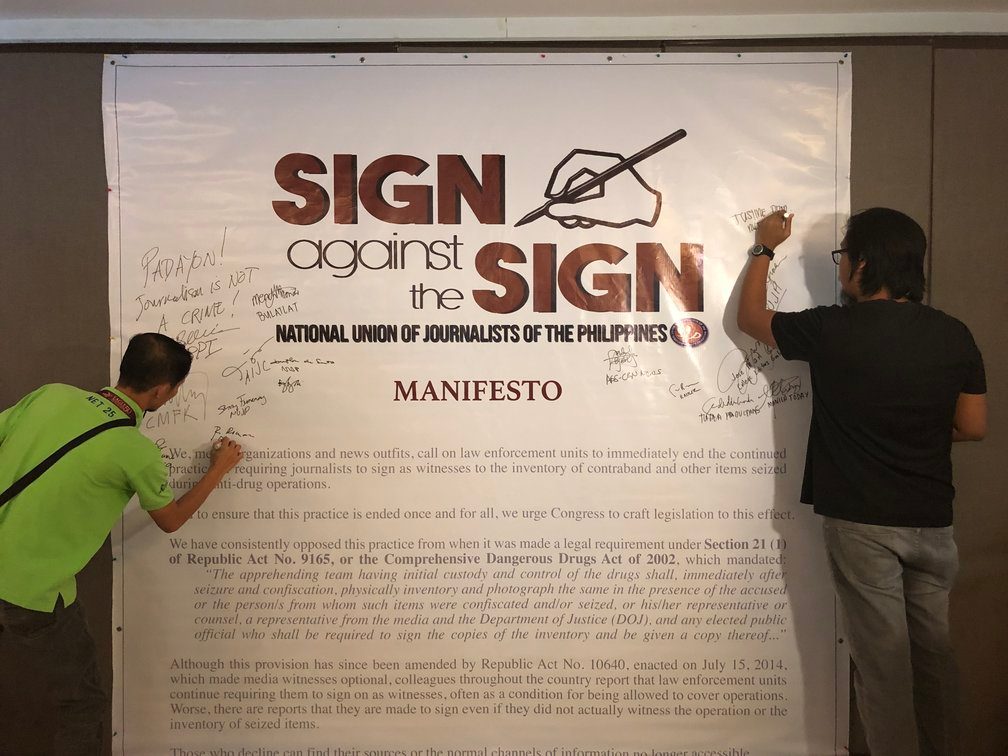SUMMARY
This is AI generated summarization, which may have errors. For context, always refer to the full article.

MANILA, Philippines – Media practitioners and organizers on Friday, November 9, launched the “Sign Against the Sign” campaign against requiring journalists to sign police reports as witnesses to anti-drug operations.
The signature campaign is in support of efforts of the National Union of Journalists of the Philippines (NUJP) to get Congress to repeal the relevant provisions of Republic Act 9165 or the Comprehensive Drugs Act of 2002.
The law requires journalists to sign as witnesses in anti-drug operations.
Provisions have been amended, but only to the extent that getting journalists to signing off on police reports becomes only optional, not completely prohibited.
NUJP chairperson Nonoy Espina noted reports that the police still engage in this practiced – they threaten to cut off journalists from coverages if the latter refuse to sign. Those who prefer not to serve as witnesses may find themselves getting looped out of information channels.
Espina stressed that the requirement poses an ethical problem to journalists: “May ethical problem na mismo ‘yung pagiging testigo natin, kasi ang trabaho natin as journalists is to record events. ‘Pag tayo’y tumestigo kasi, tayo’y pumapanig na,” said Espina.
(There’s an ethical problem when we testify because our job as journalists is to record events. If we testify, we’re already taking sides.)
He said requiring journalists to be witnesses in these operations may put them at risk. There are instances when journalists may face retaliation from crime syndicates or may be wrongly accused. (READ: Despite improved status, PH ranks 5th on Global Impunity Index)
With the dangerous landscape set by President Rodrigo Duterte’s war on drugs, measures have to be in place to ensure the safety of journalists in their coverage of anti-drug operations.
“With what’s going on in the Philippines, hindi na kailangan ng panibagong threat sa safety ng journalists sa legal o sa revenge na puwedeng manggaling sa mga drug syndicates,” said Ramon Tuazon, president of Asian Institute of Journalism and Communication (AIJC).
(With what’s going on in the Philippines, journalists don’t need a new safety threat in the form of legal cases or in possible revenge plots from drug syndicates.)
Media practitioners, communication students and teachers, and people from other sectors are encouraged to take part in the campaign and show support for the protection of journalists.
“We need a community of journalists, community of media organizations to move this thing forward…. In the final analysis, kasama ang publiko sa usapin na ‘to (the public is part of the conversation). This is not just a media issue,” Ariel Sebellino, Philippine Press Institute (PPI) executive director, said.
Signings have started in NUJP chapters in Pampanga, Davao City, and Surigao del Sur.
Those who want to express their support for the “Sign Against the Sign” campaign may do so online. – Rappler.com
Add a comment
How does this make you feel?
There are no comments yet. Add your comment to start the conversation.